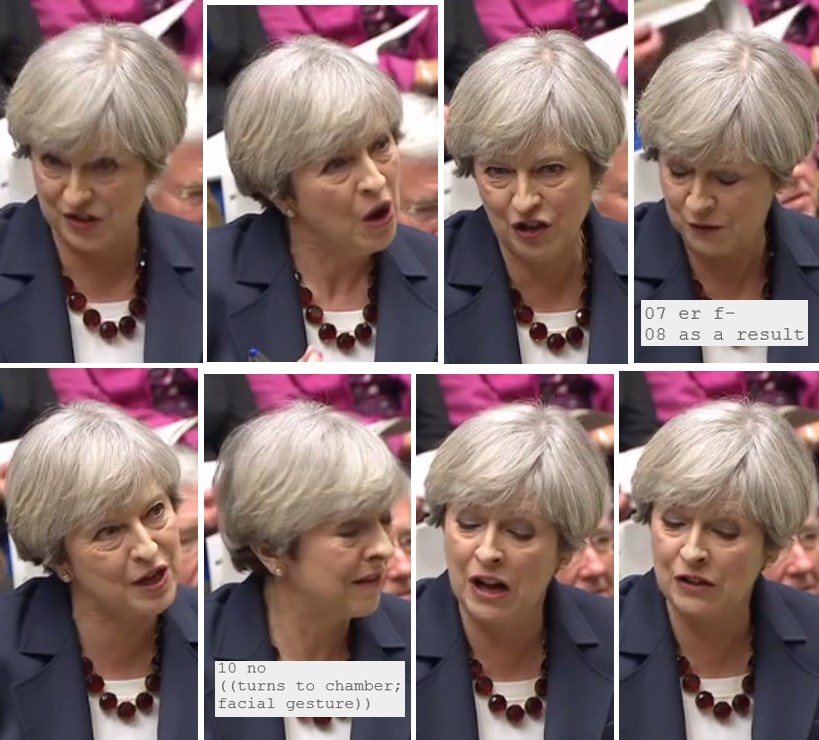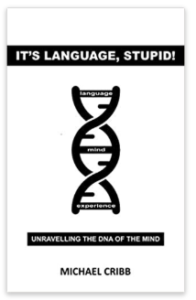Hesitation in delivery is a normal part of spoken discourse, especially in stressful speaking situations, and is normally discarded by listeners. In the House of Commons however, just before a demanding election campaign and when a manifesto is being prepared, even a small stumble over one’s words can be taken by those listening to be significant.
Here, Theresa May, the Prime Minister, responds to a question from Angus Robertson MP, leader of the SNP in the House, on the pensioner ‘triple lock’ which was in the Conservative manifesto for the 2015 general election. Robertson asks May whether she can give a ‘clear and unambiguous commitment’ to maintaining this in the forthcoming 2017 manifesto. May replies:
Theresa May 01 I’ve been very clear 02 that under this Conservative government (0.4) 03 ((chamber quietens)) 04 we see (.) 05 we have seen con- er 06 pensioners benefit (0.4) 07 er f- 08 as a result of what we’ve done to the basic state pension 09 ((chamber noise rises; 2.5 secs)) 10 no ((turns to chamber; facial gesture)) 11 ((noise continues; 2.0 secs)) 12 to: (0.5) 13 the tune of one thousand two hundred and fifty pounds a year
The chamber quietens in line 03 in anticipation of her answer but then rises in line 09. These changes in the audience’s demeanour act to ‘book-end’ May’s delivery which falters in-between very slightly in delivery: a false start in line 04, hesitation in 05, a pause (albeit small) in line 06 and hesitation in 07. These details, while small and quite normal for any speaker, take on significance here because of the audience’s expectation. The question asked for a ‘clear and unambiguous commitment’ but the hesitation is taken by the audience to be a sign of ambiguity.
the audience plays a key role in interpreting and judging delivery
Non-verbal gestures
Non-verbal gestures accompany all speech and, for most of the delivery, May maintains eye contact with the original questioner (Robertson) or the members just across the chamber. In line 07, as she starts to falter, her eyes close momentarily. Then in line 10, as she acknowledges the noise from the chamber, she turns to her left and, with a closing of the eyes, says ‘no’ in high pitch. This is the only time in the extract that she acknowledges the audience and it indicates her frustration with them as they interrupt her stride.

This was only a very brief moment in the whole of PMQs on Wednesday but it caught the attention of the media in the subsequent reporting and led to the belief among many that the Conservatives are preparing to drop the triple lock promise for pensioners from their manifesto. Delivery of words can be so important in certain situations and the audience plays a key role in interpreting and judging this.



Leave a Reply
You must be logged in to post a comment.